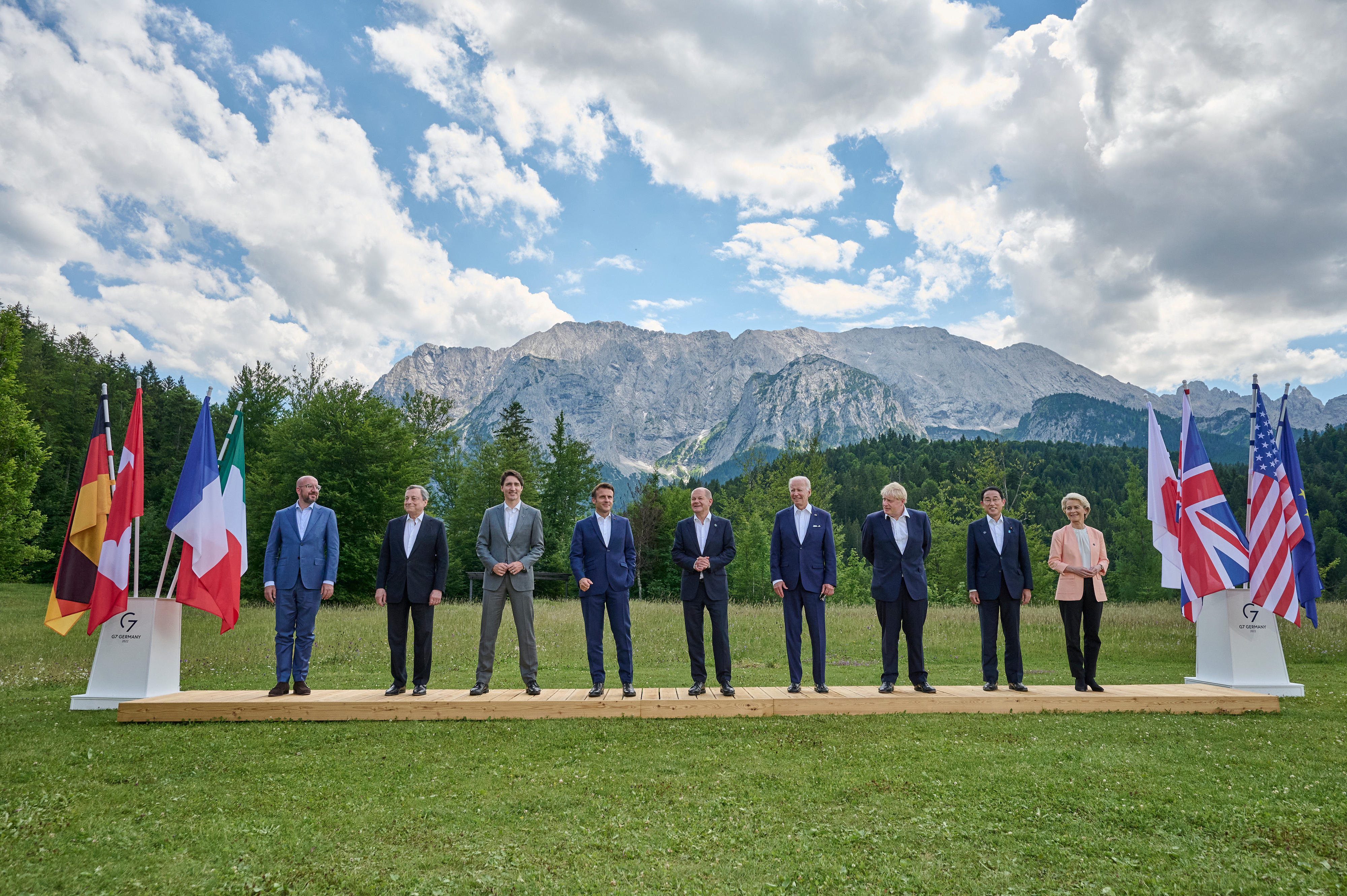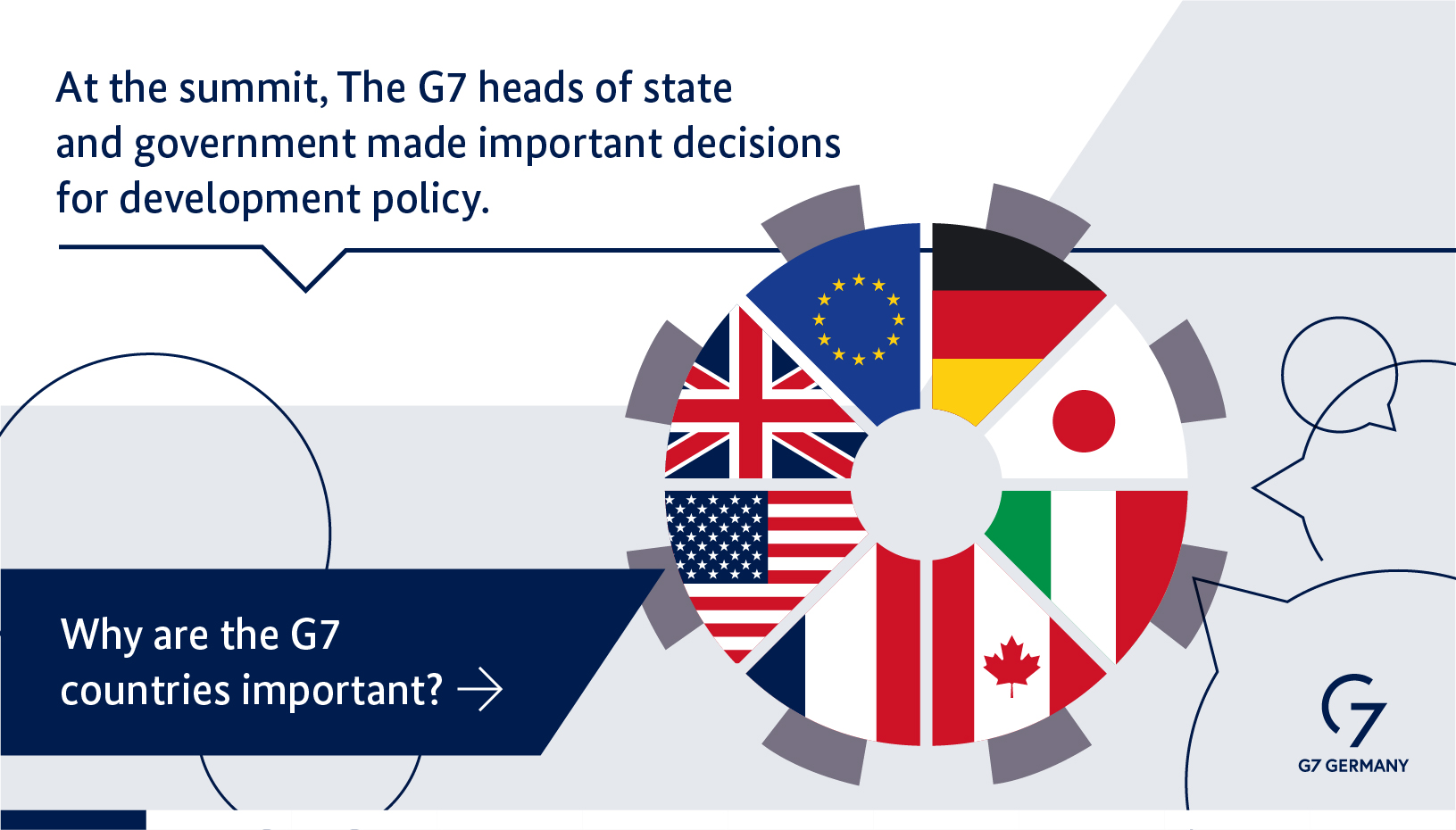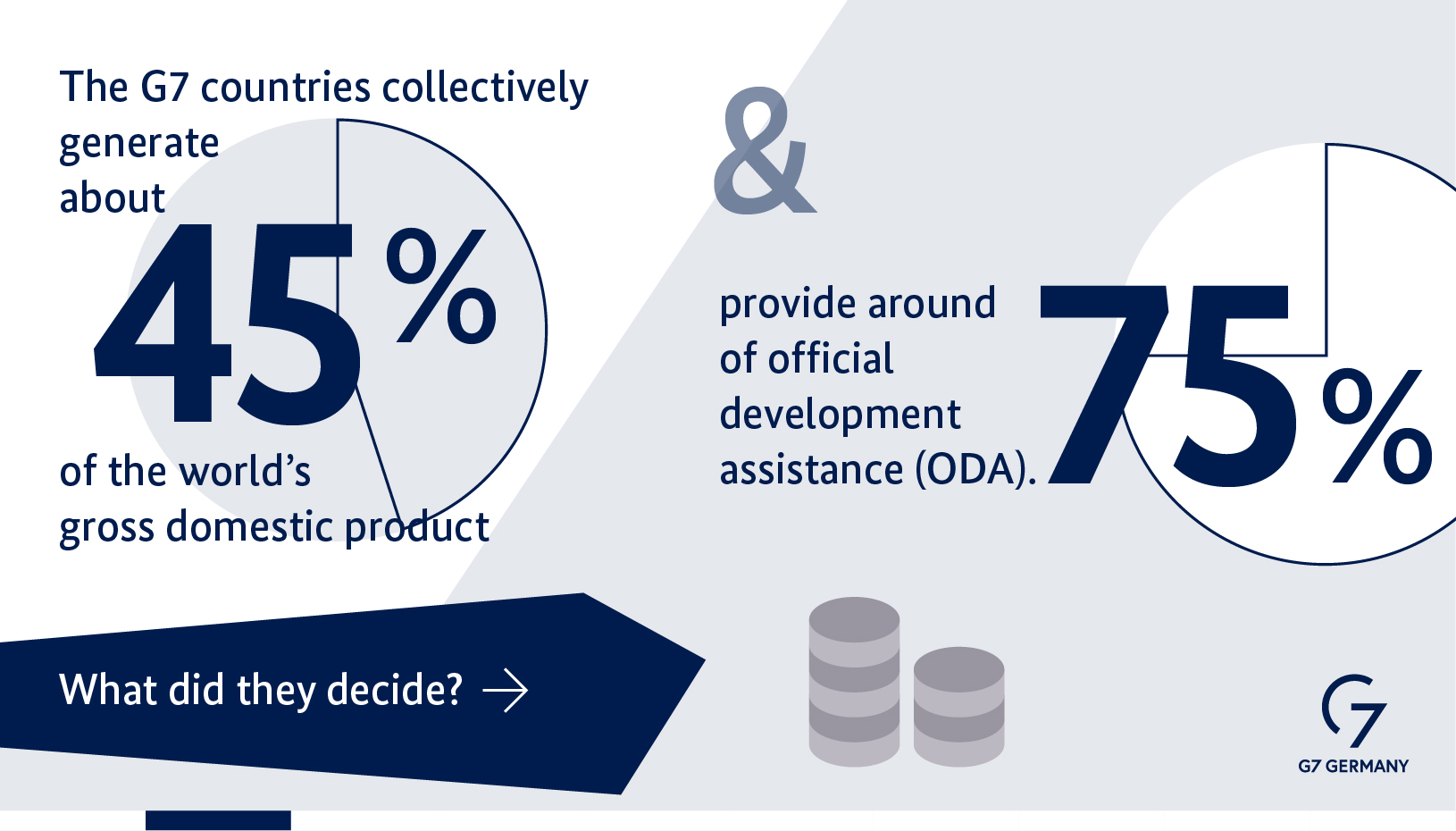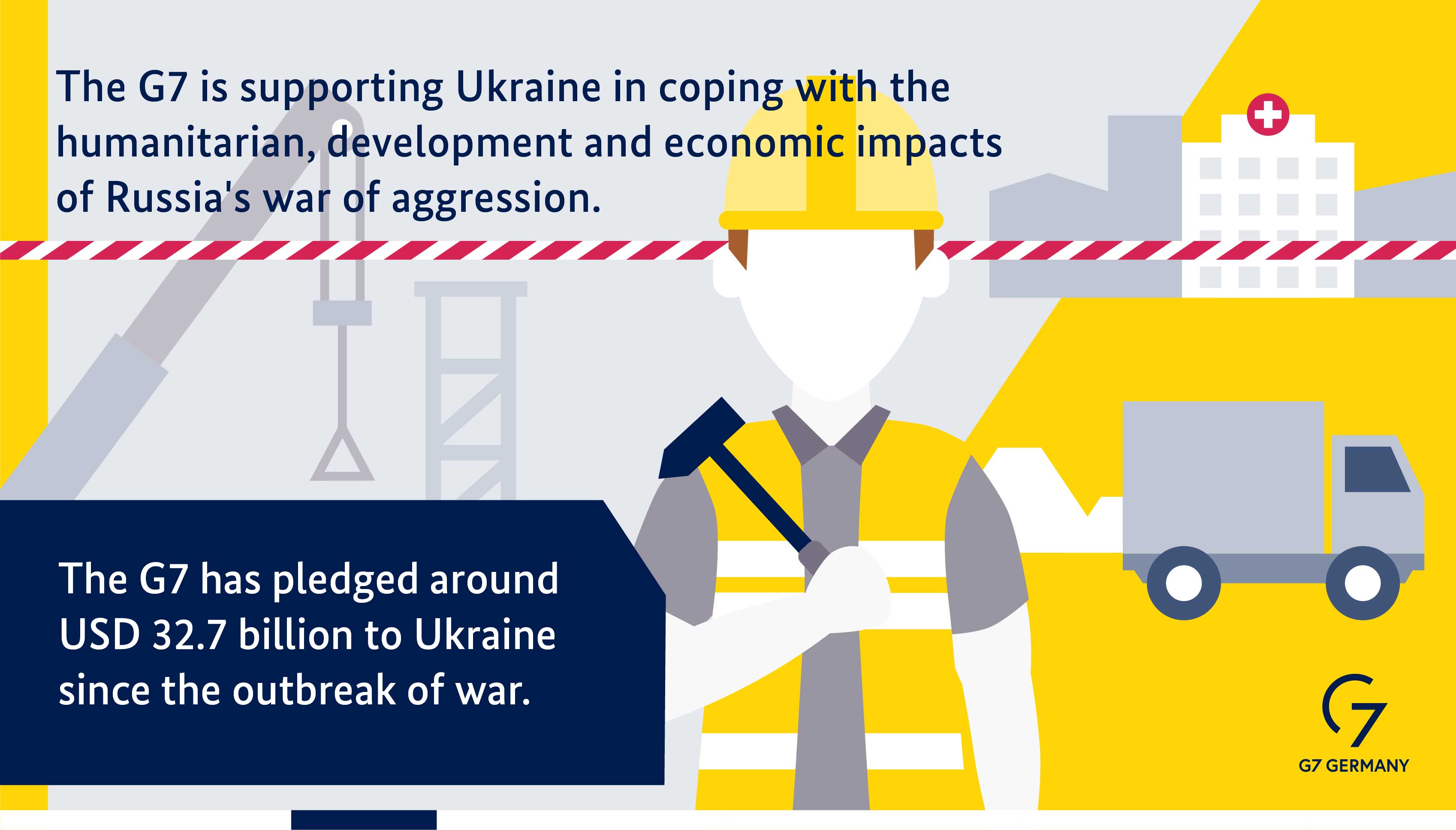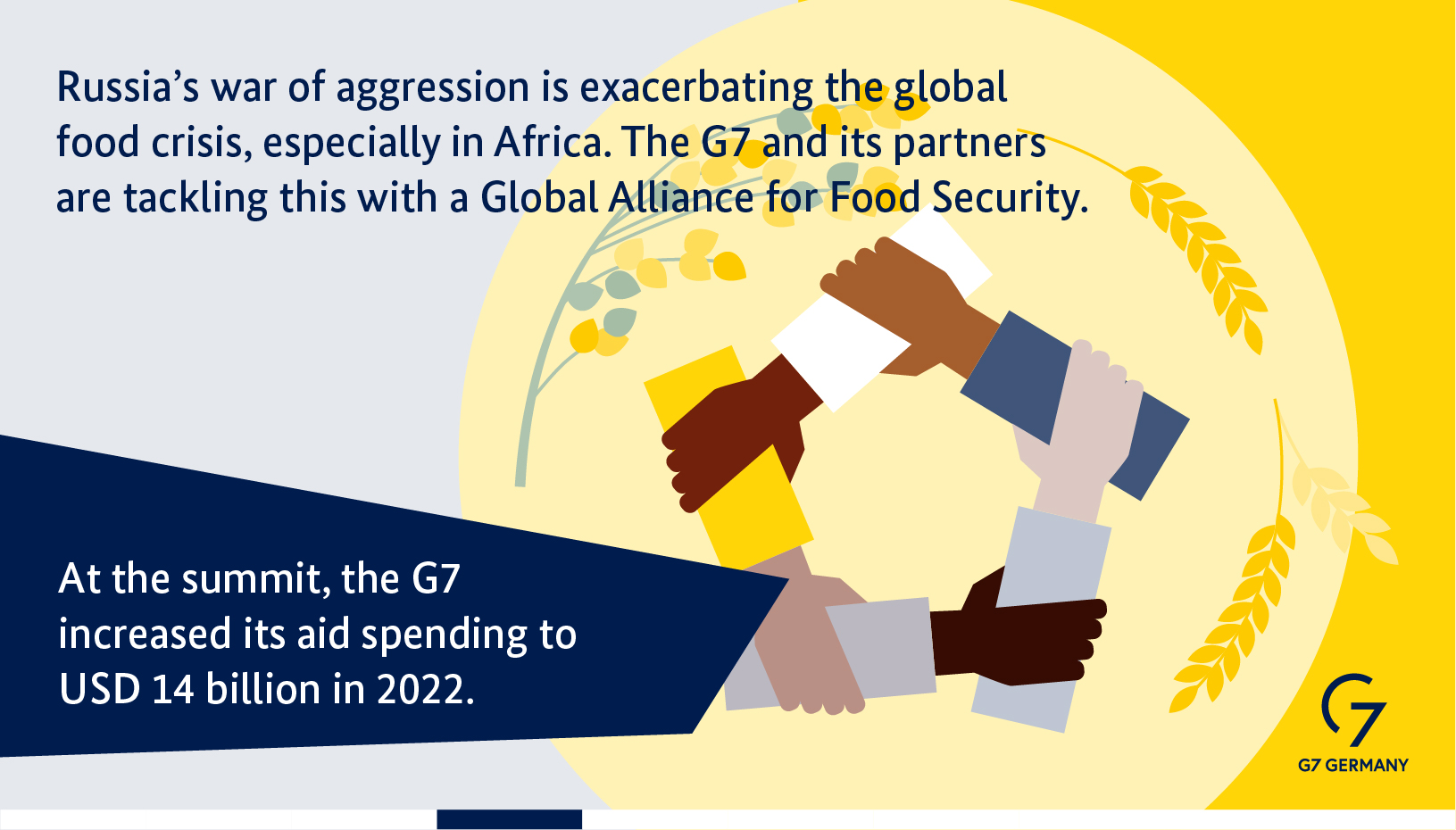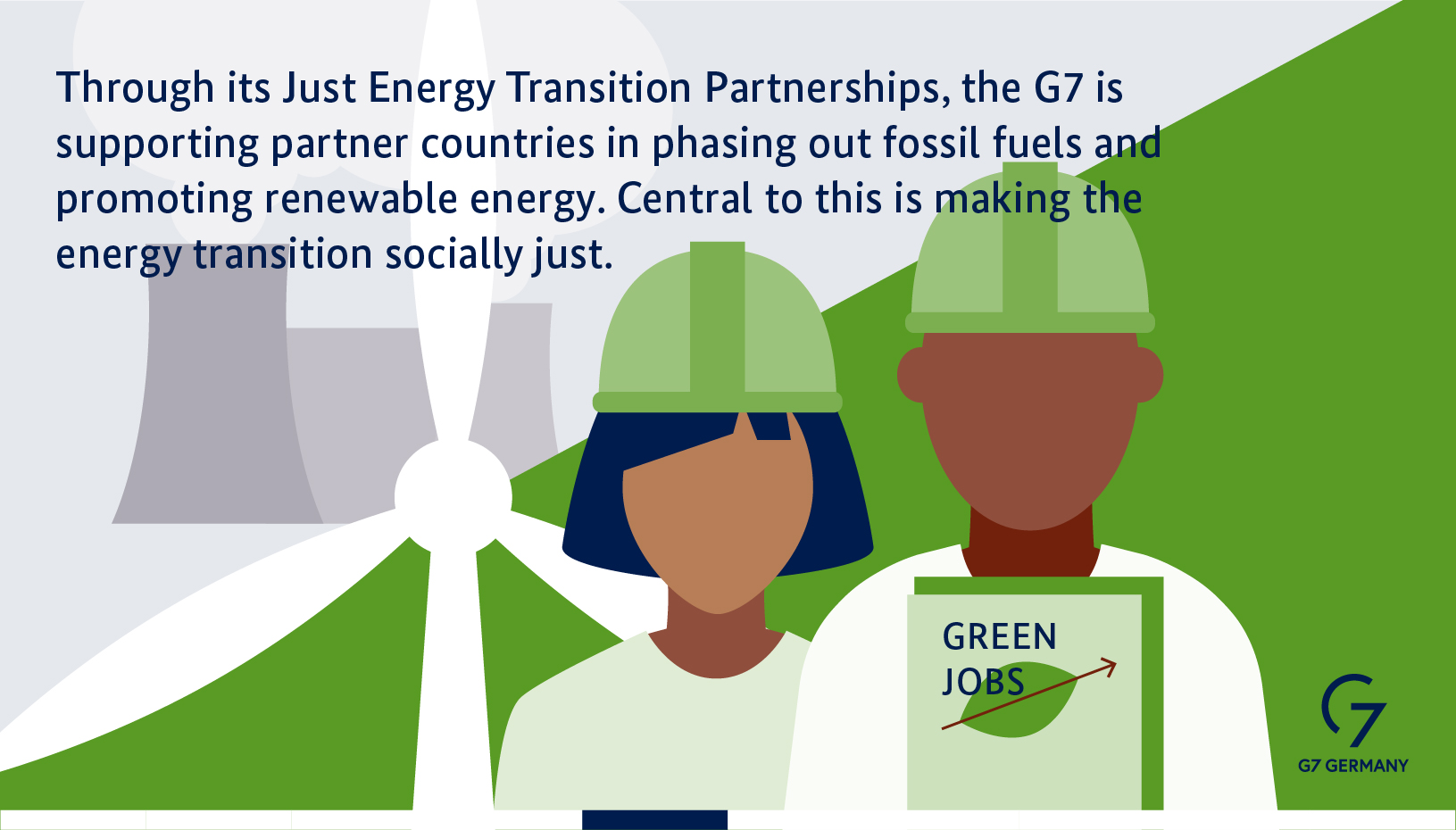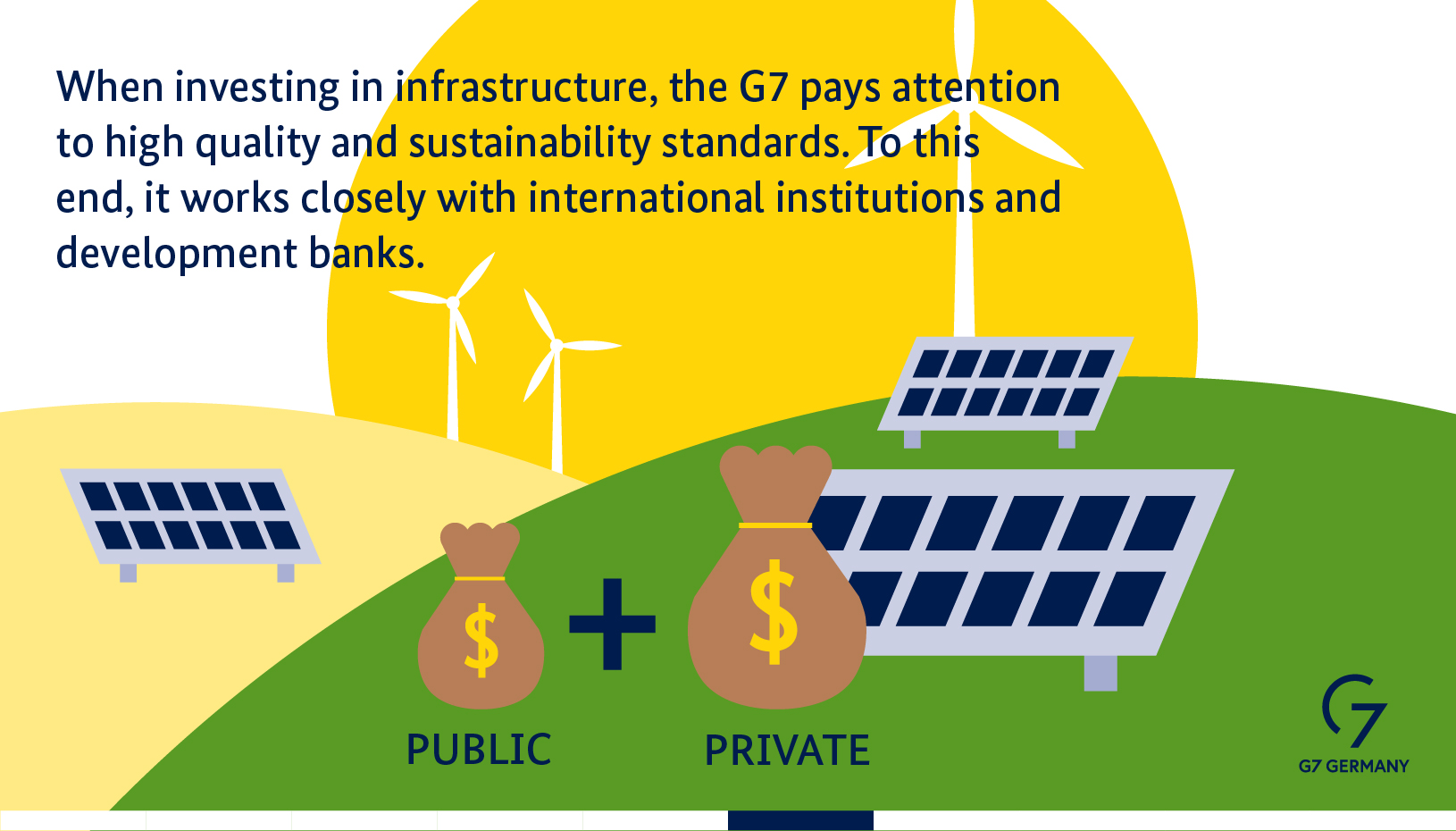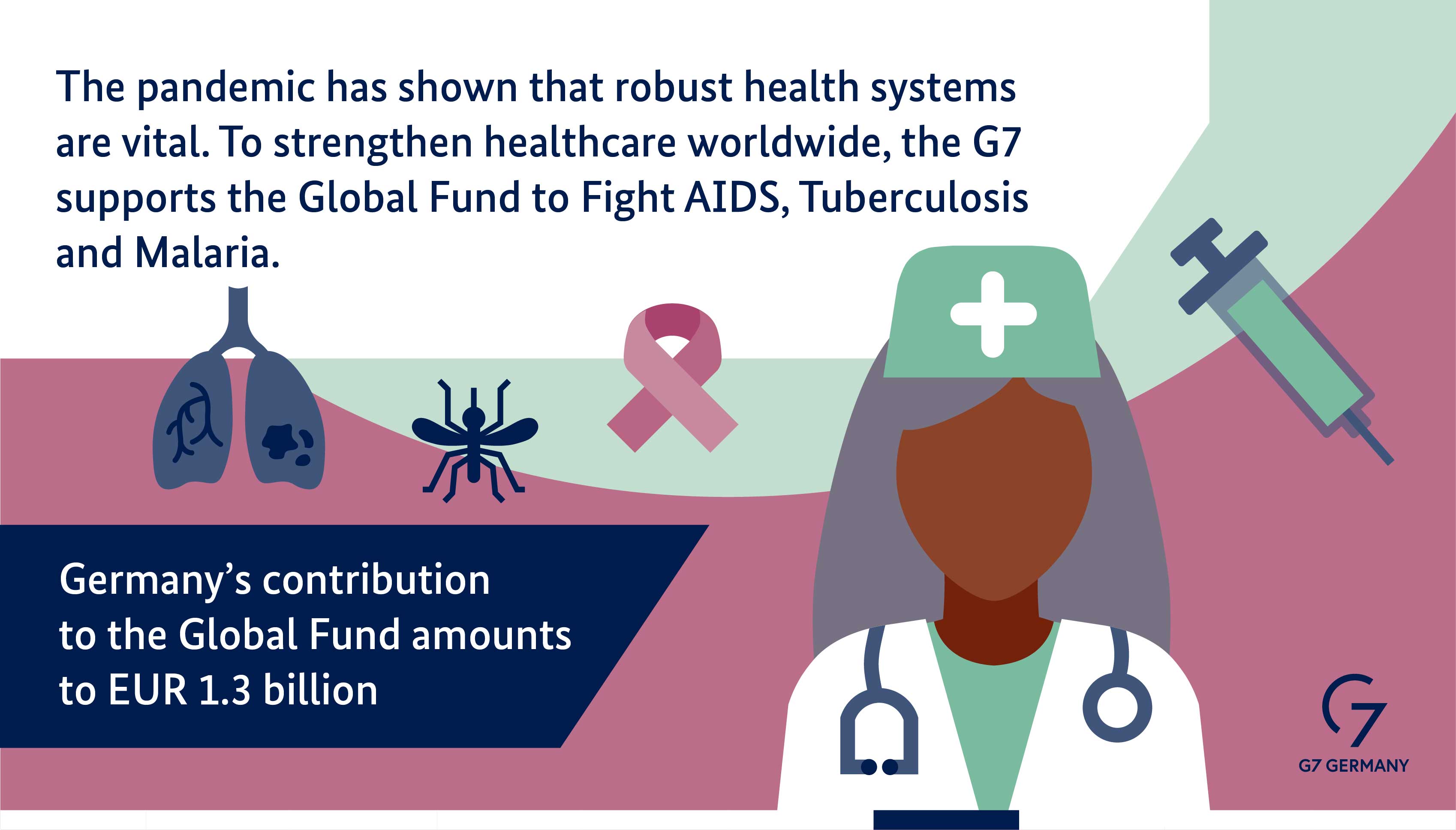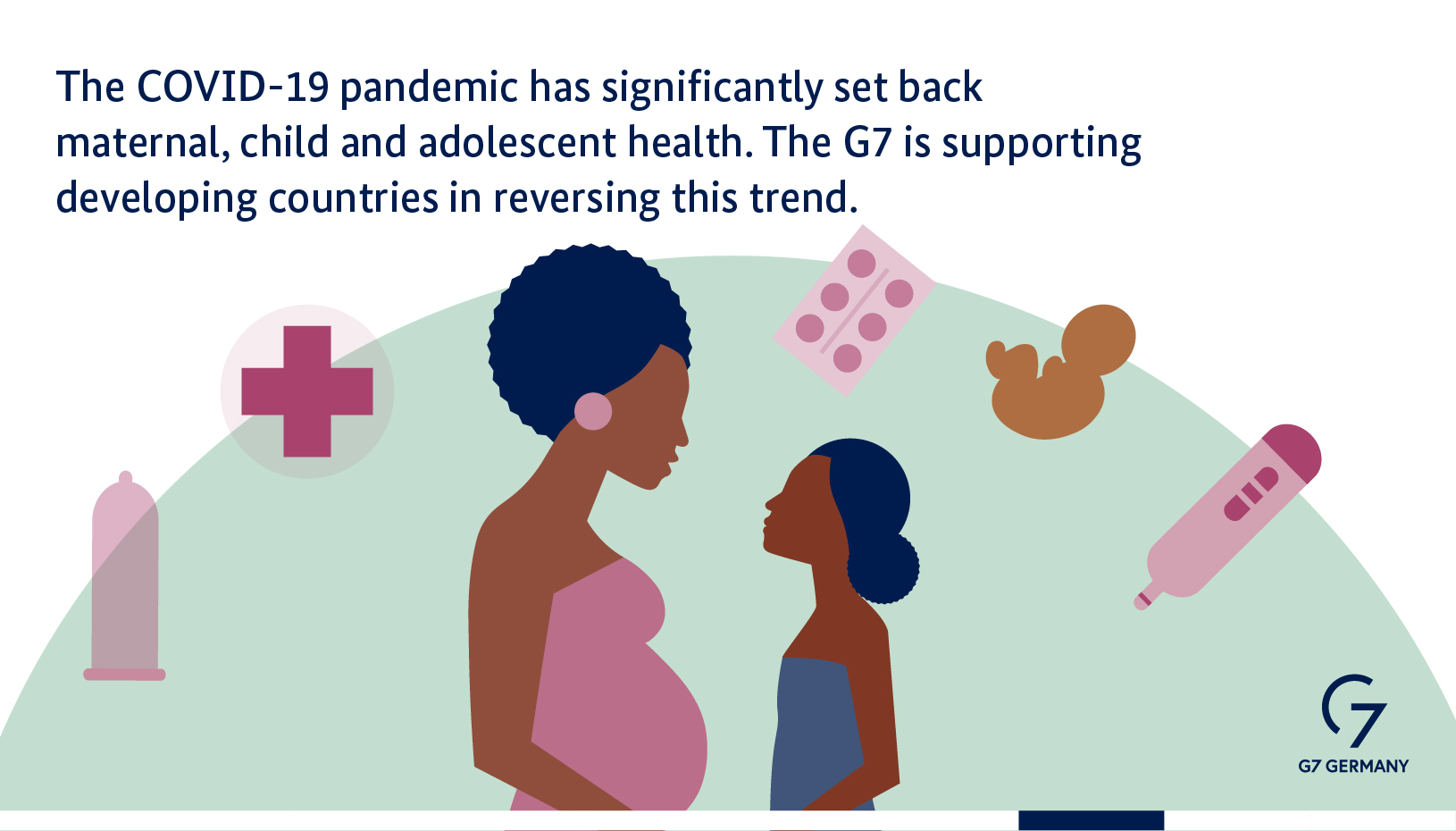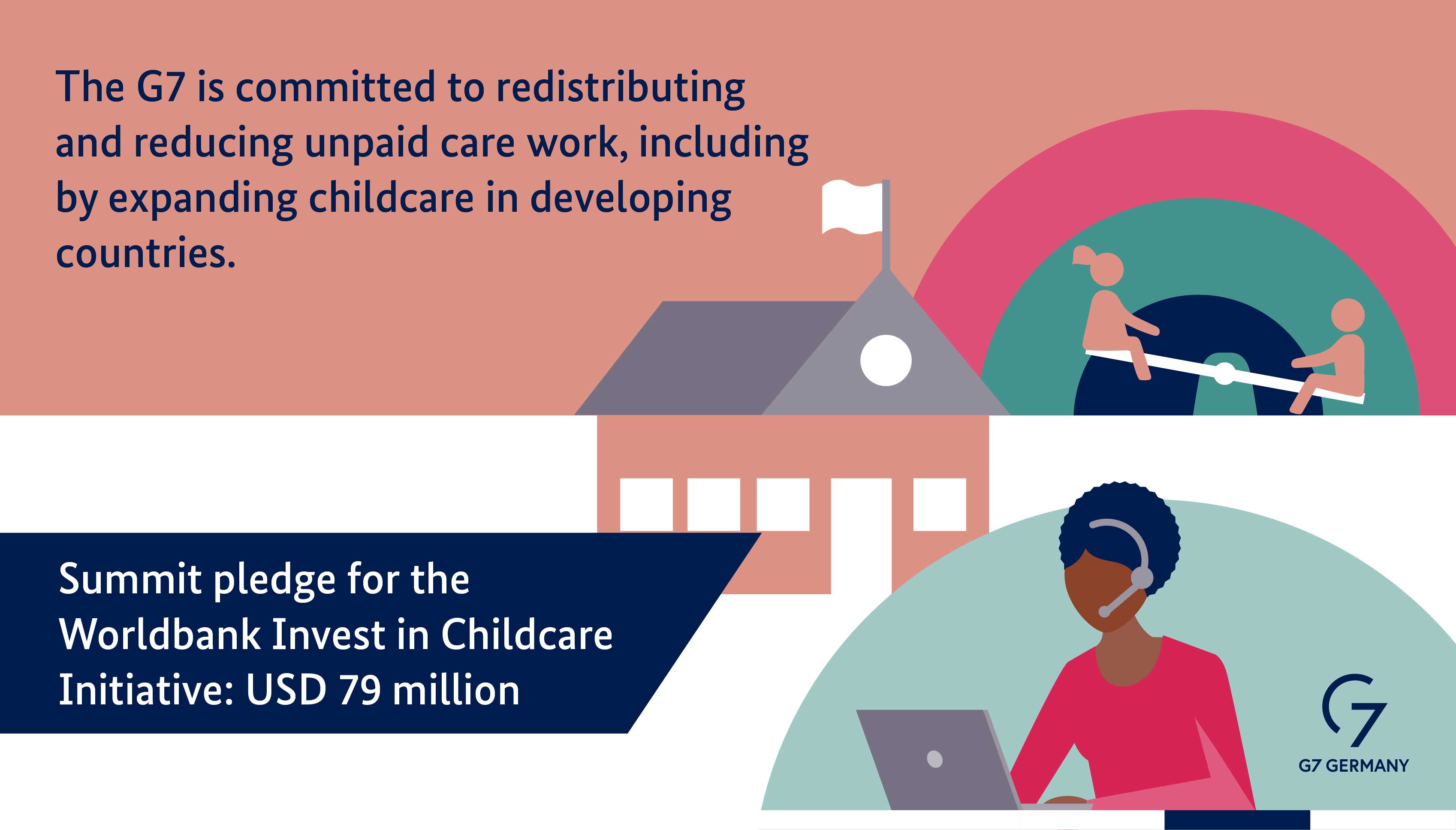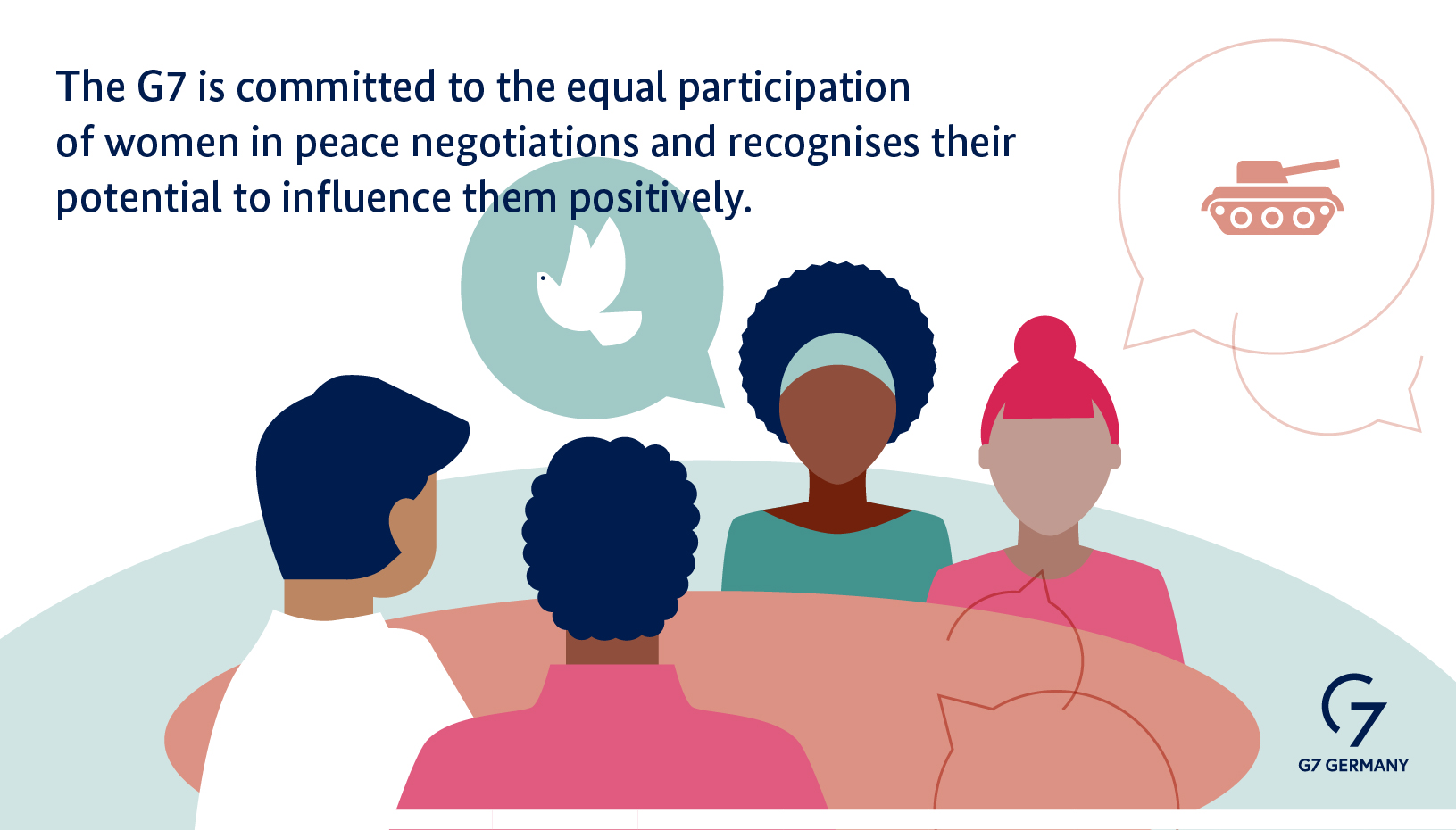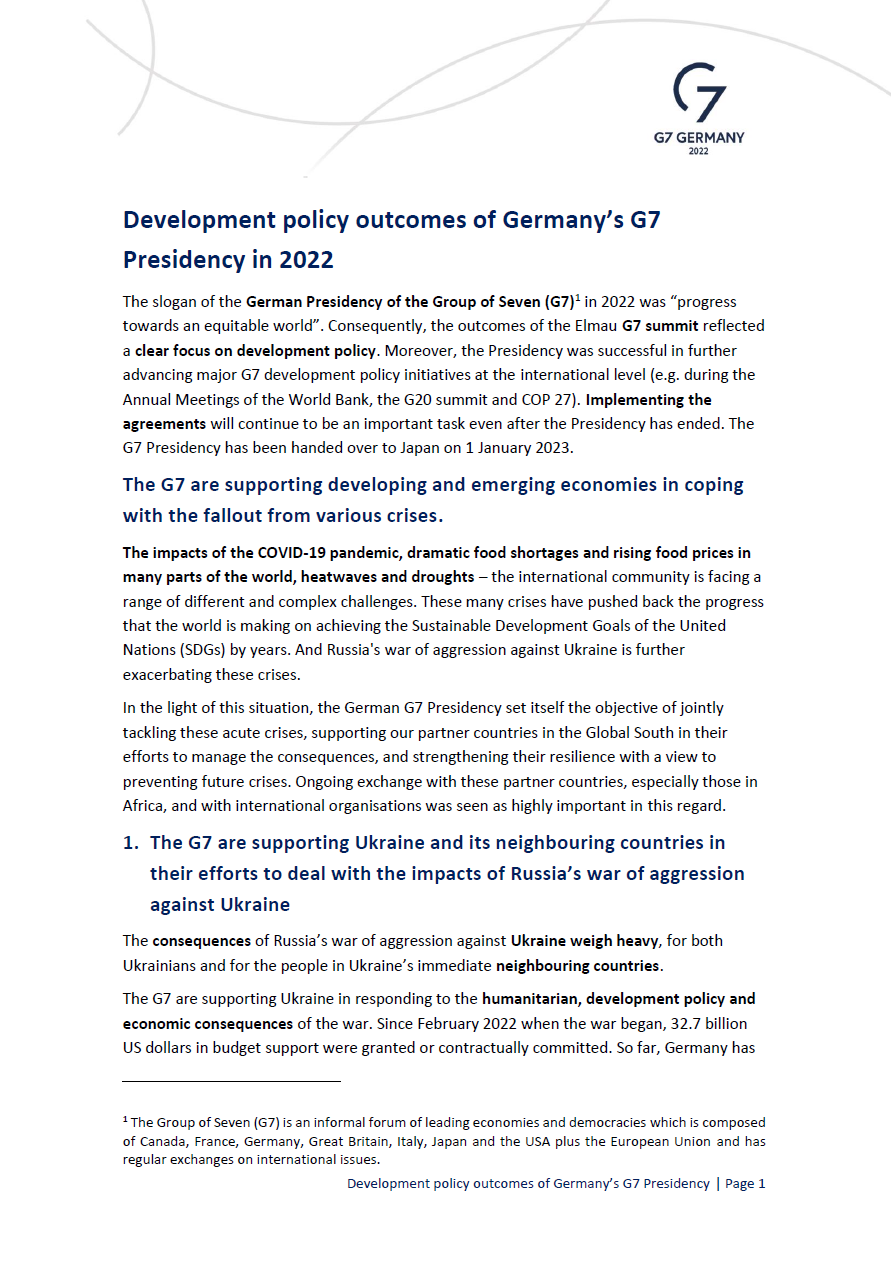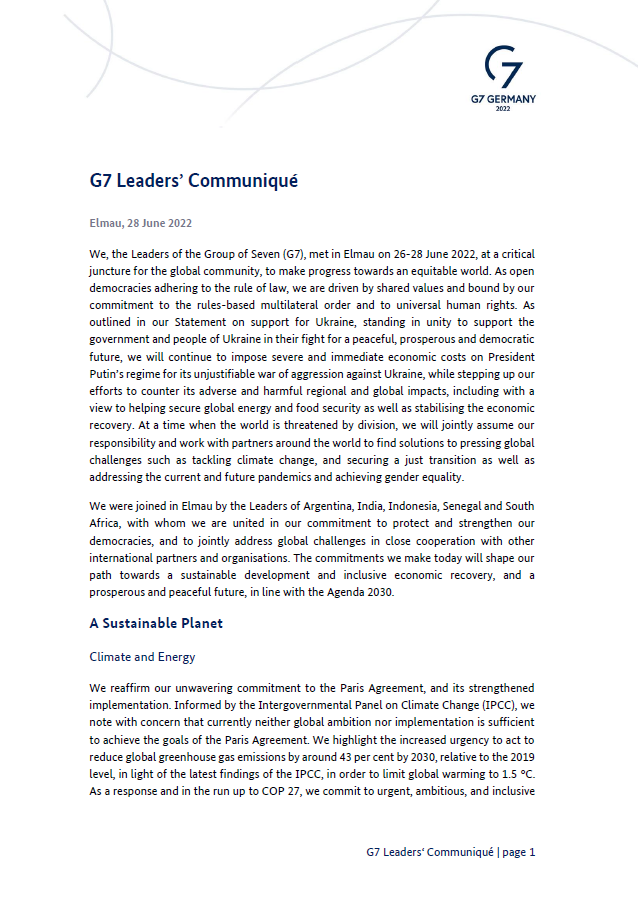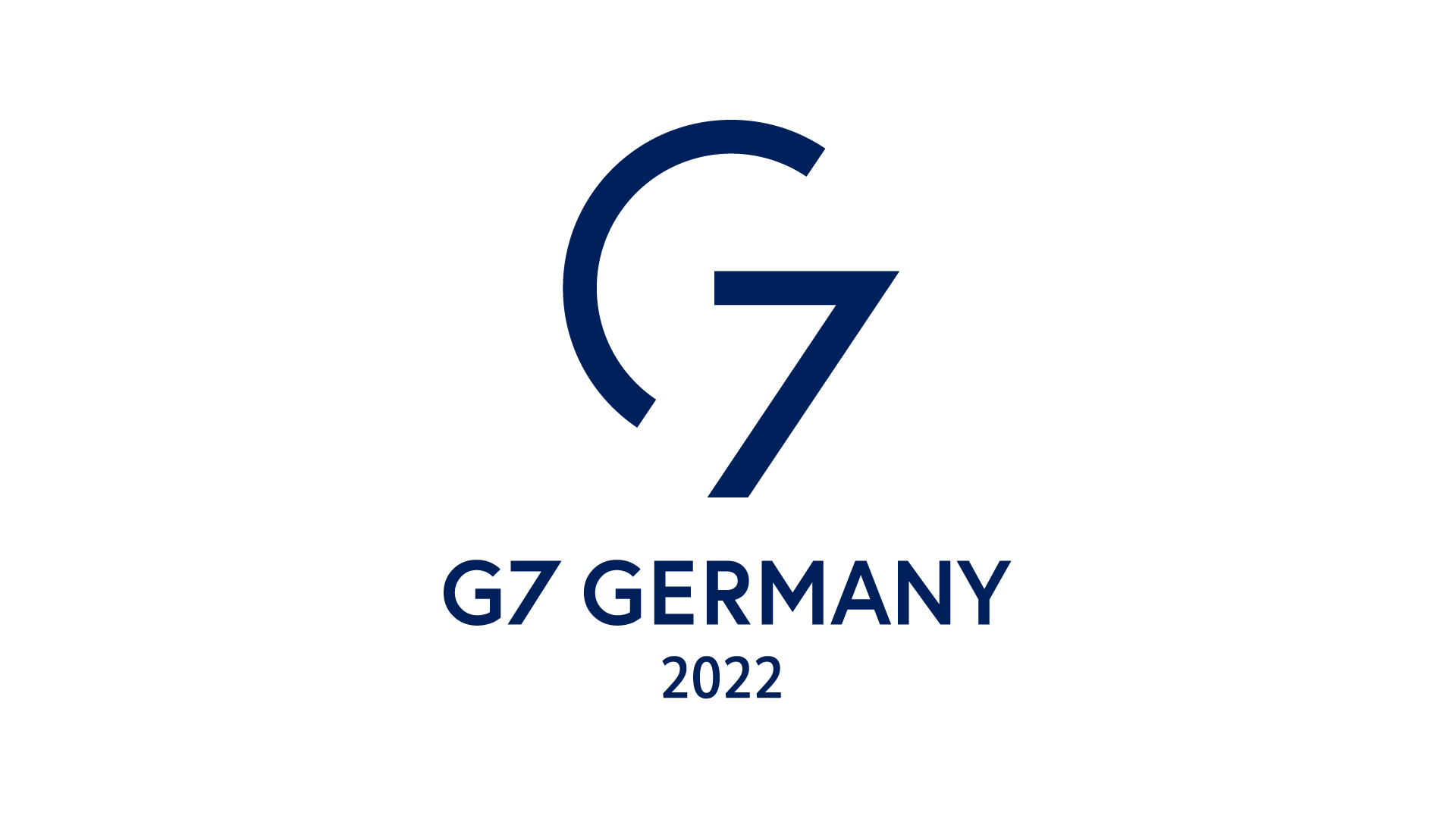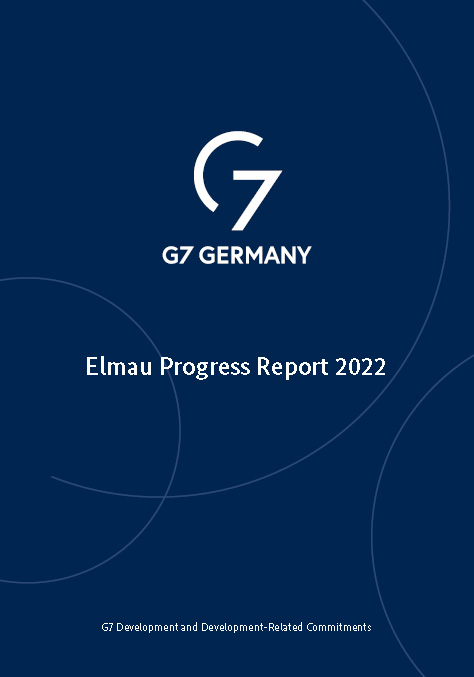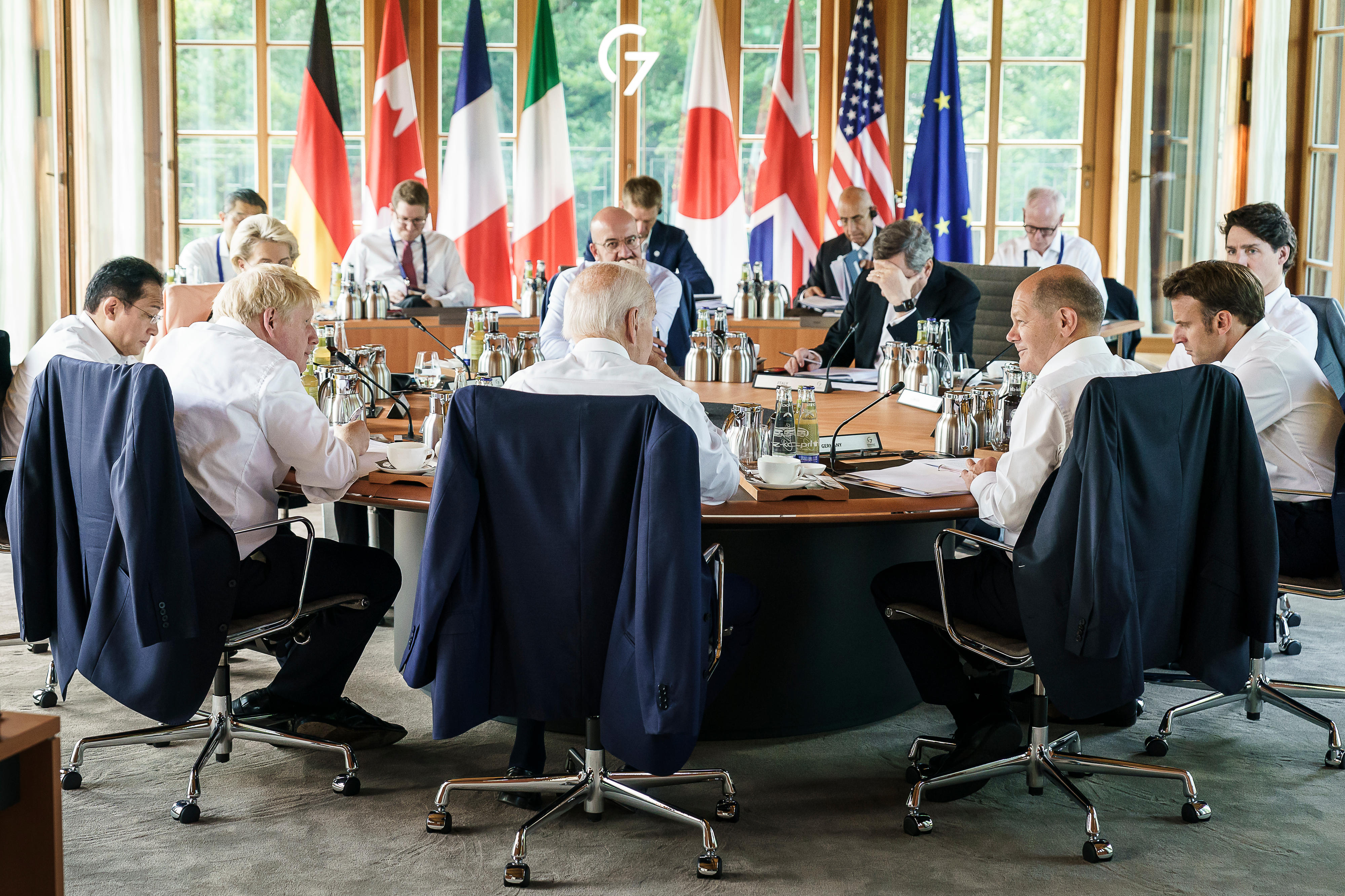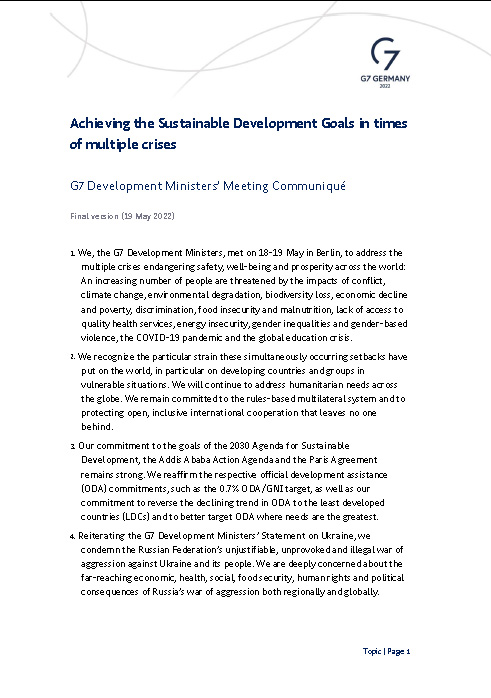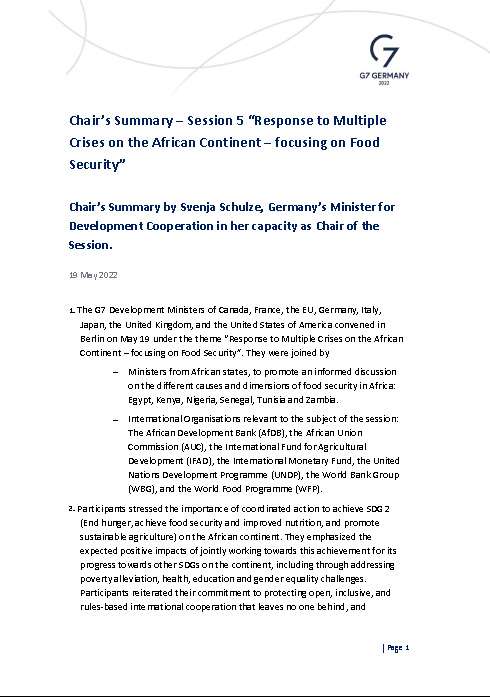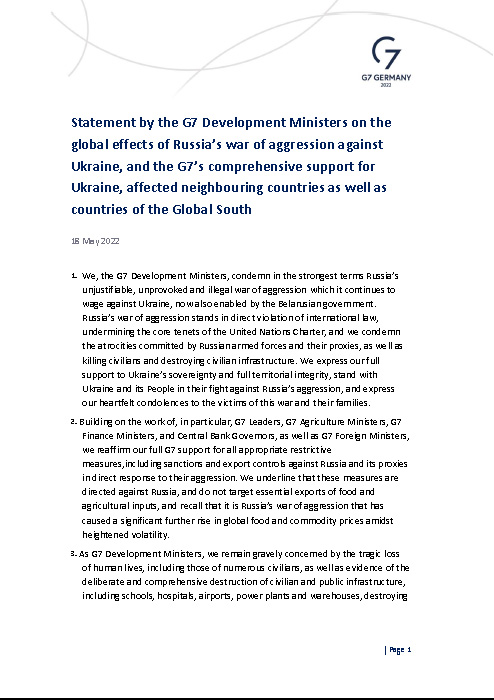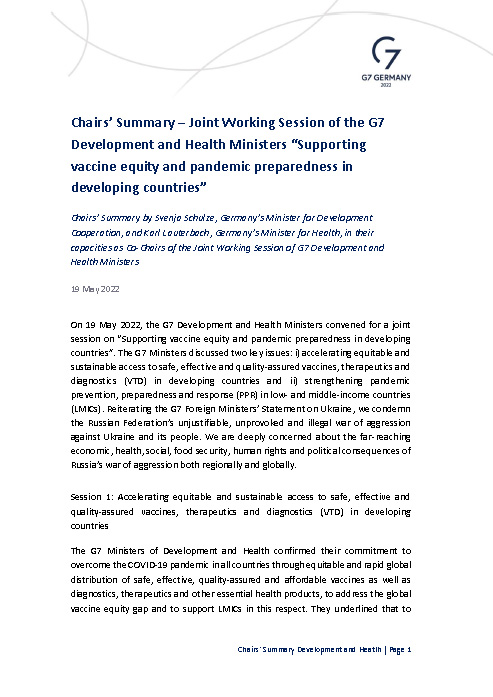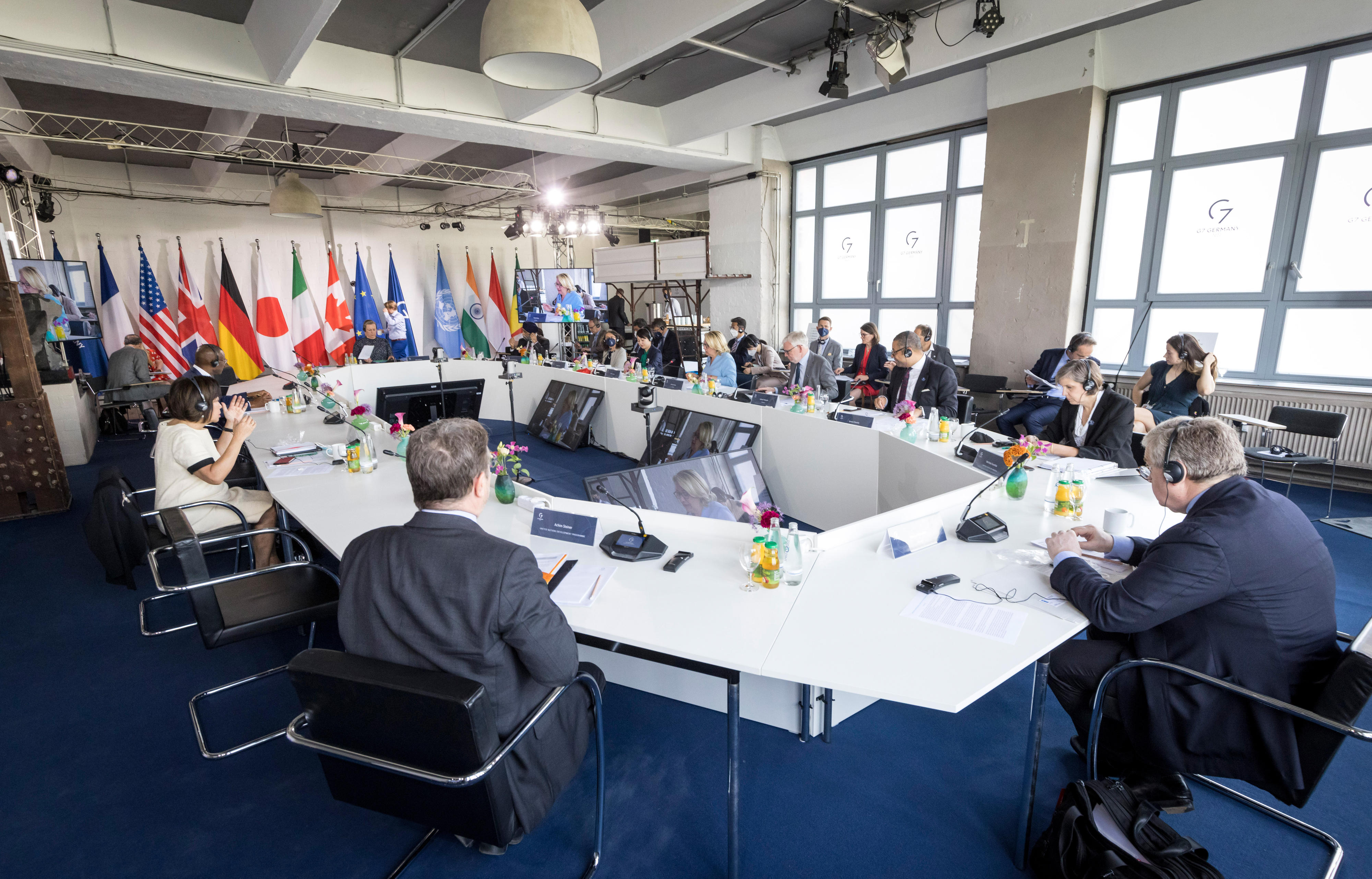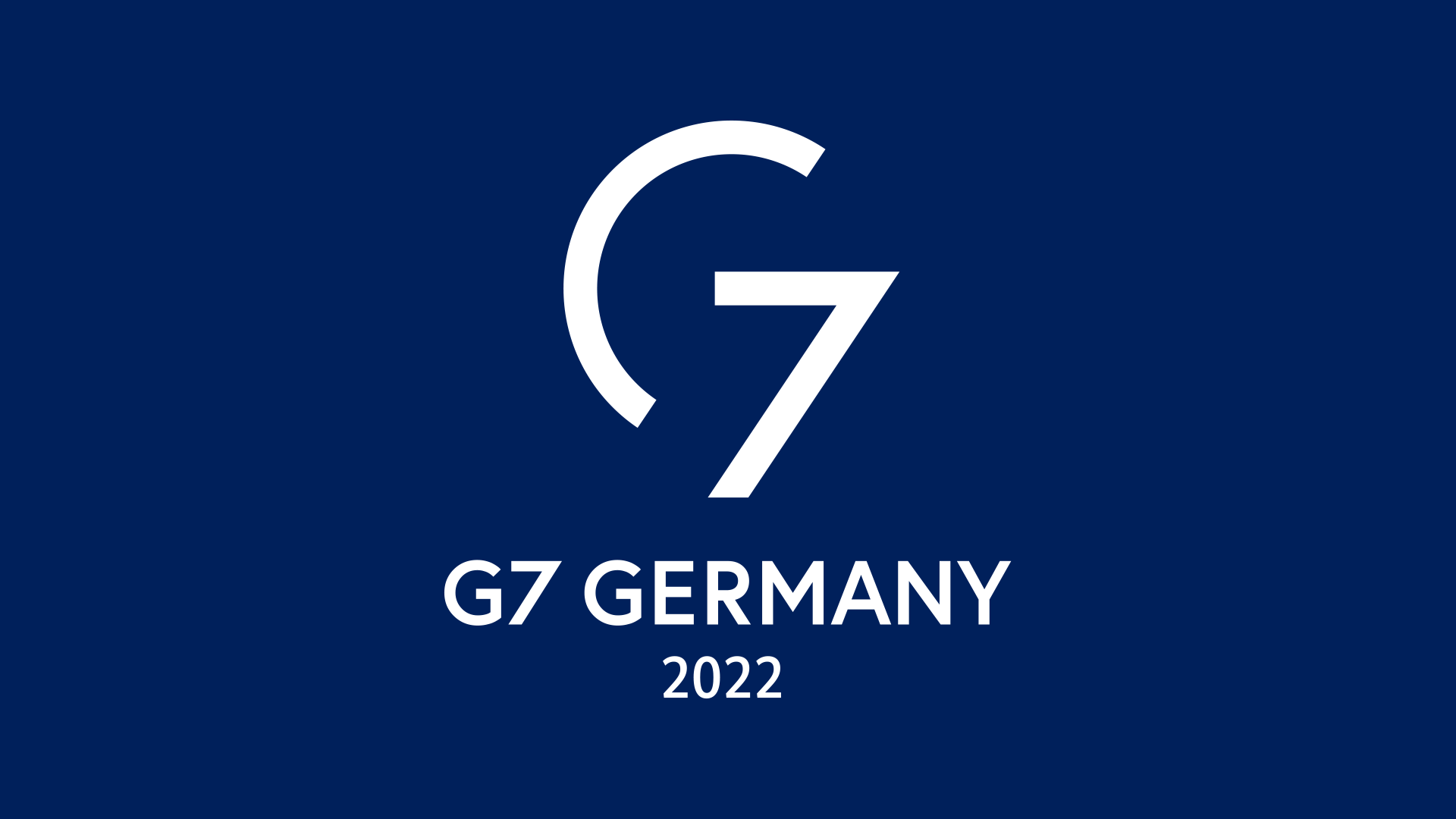Group photo of the G7: Charles Michel (President of the European Council), Mario Draghi (Prime Minister of Italy), Justin Trudeau (Prime Minister of Canada), Emmanuel Macron (President of France), German Chancellor Olaf Scholz, Joe Biden (President of the USA), Boris Johnson (Prime Minister of Great Britain), Fumio Kishida (Prime Minister of Japan) and Ursula von der Leyen (President of the EU Commission).
Copyright© Philipp Guelland/ Presse- und Informationsamt der Bundesregierung
Group of 7 Development policy outcomes of Germany’s G7 Presidency
Germany’s G7 Presidency was guided by this insight and has been able to deliver some important development policy successes at the end of a dynamic G7 year. We fully agree with our partners that we need to move forward faster to reach the goals of the 2030 Agenda. We will therefore work together to push forward and implement our G7 agreements at the international level.
G7 outcomes
Addressing the impacts of Russia’s war of aggression against Ukraine
- The G7 are supporting Ukraine in coping with the humanitarian, development and economic impacts of Russia’s war of aggression. Since the start of the war in February 2022, the G7 have provided or committed to provide budget support of around 32.7 billion US dollars. In this way, the G7 have supported Ukraine in closing its financing gap and ensuring that basic services remain available to the Ukrainian population, for example.
- Key concerns include support for internally displaced persons and for the long-term reconstruction of the country’s social, economic and civil society infrastructure. A new international platform initiated by the G7 and the EU Commission is coordinating the reconstruction and rehabilitation efforts of state and private actors.
- The G7 are also supporting Ukraine’s neighbours, in particular the Republic of Moldova and Georgia, in strengthening crisis resilience, improving food security and implementing a socially just energy transition.
You can find background information on this topic here.
Making agricultural and food systems sustainable, resilient and just
- Russia’s war of aggression is further exacerbating the global food crisis, particularly in Africa. Even before the war, around 282 million people across the continent were malnourished. In order to tackle this problem, the G7 and their partners have launched a Global Alliance for Food Security and a variety of bilateral measures.
- By the June 2022 summit, the G7 heads of state and government had made about 14 billion US dollars available to Ukraine to fight food insecurity. Since then, they have announced further contributions. Germany has increased its support by an additional one billion euros.
- The G7 reaffirmed their commitment to lift 500 million people out of hunger and malnutrition by 2030. One of the key factors in doing so is the long-term transformation of agricultural and food systems in developing countries to ensure greater resilience (External link)and sustainability. Activities in this field include support for smallholders who provide ecosystem services.
You can find background information on this topic here.
Leading the way on climate change and biodiversity conservation
- Through its Just Energy Transition Partnerships (JETPs), the G7 are supporting ambitious developing countries and emerging economies in phasing out fossil fuels and promoting renewable energy. After the G7 partners and the EU had announced the first JETP with South Africa in 2021, a second JETP was agreed with Indonesia at the G20 summit in Bali and a third one with Viet Nam in December. Currently, there are talks with India and Senegal to explore the possibility of such a partnership.
- With a Global Shield against Climate Risks, the G7, together with the V20 (the group of countries that are especially vulnerable to climate change), will provide targeted support to poor and vulnerable people and countries in establishing structures to protect them against loss and damage. The German government is providing 170 million euros to kick-start this endeavour. Pakistan is one of the first countries that will benefit from the Global Shield.
- Climate action and the conservation of biodiversity are inseparably linked. That is why the G7 are working to halt and reverse the loss of biodiversity, including through a significant increase in funding by 2025.
You can find background information on this topic here.
Paving the way for forward-looking infrastructure investments for sustainable development
- Through the G7 Partnership for Global Infrastructure and Investment, the G7 members want to reduce the enormous investment gap for sustainable infrastructure in low- and middle-income countries. To do this, they aim to mobilise 600 billion euros in public and private funds by 2027. Germany is contributing indirectly to this through investments by the EU’s Global Gateway Initiative (300 billion euros), which the German government supports via its contributions to EU instruments and Team Europe Initiatives.
- To implement this funding, long-term partnerships for sustainable infrastructure, such as the Just Energy Transition Partnerships, are to be created between G7 and partner countries. A key concern is to include private funding to a greater extent, for instance by using public funding to leverage private investment. Germany is providing significant additional funding for project preparation programmes of development banks to lay the basis for private financing.
You can find background information on this topic here.
Making the energy transition climate-neutral and socially just (Just Transition)
- The global transition towards a climate-neutral economy needs to be socially just. The G7 are committed to creating more green jobs and ensuring that up to one billion more people have access to social protection by 2025. In consultation with the World Bank and the International Labour Organization (ILO) the BMZ is seeking to achieve closer collaboration between them to speed up progress in these areas.
- The G7 are committed to strengthening and implementing international environmental, labour and social standards along global supply chains.
- Socially just climate policies have to be financed. The G7 are supporting countries in mobilising domestic revenue for public investment through measures to combat illicit financial flows, particularly in Africa.
- The G7 development ministers have pledged to expand their joint efforts on debt restructuring as a means to achieve the SDGs and to improve the involvement of private creditors in future debt treatments.
You can find background information on this topic here.
Strengthening health systems worldwide, preventing future pandemics and improving global access to vaccines
- The key to overcoming the COVID-19 pandemic is globally equitable access to COVID-19 vaccines, medication and diagnostics. As part of their Last Mile Initiative, the G7 are also promoting local vaccine logistics, especially in Africa. They are also supporting partner countries in developing local production capacities for vaccines and medicines.
- To prevent future pandemics, the groundwork for the Pandemic Fund for financing pandemic prevention was laid during the German G7 Presidency. The Fund was officially launched by the G20.
- The G7 provide financial support for the cooperation platform Access to COVID‐19 Tools Accelerator (ACT‐A). Since 2020, Germany has contributed 3.3 billion euros.
- The G7 made an ambitious pledge to replenish the Global Fund to Fight AIDS, Tuberculosis and Malaria (GFATM), with the German government committing almost 1.3 billion US dollars.
- The G7 also made a significant contribution of 2.6 billion US dollars to the Global Polio Eradication Initiative (GPEI), thereby helping to eradicate polio in developing countries.
- The COVID-19 pandemic has significantly set back sexual and reproductive health and rights as well as maternal, child and adolescent health. The G7 are responding to this challenge by providing financial support to the Global Financing Facility, for example.
You can find background information on this topic here.
Strengthening gender equality worldwide in the spirit of a feminist development policy
- In the spirit of a feminist development policy, the G7 have committed to promoting equal participation of all people in social, political and economic life.
- Over the next few years, the G7 will therefore increase the overall proportion of development measures with a focus on empowering women and girls. The BMZ has set itself the goal of increasing this proportion to more than 90 per cent by 2025.
- For the first time, the G7 have explicitly committed to measures that strengthen the inclusion of lesbian, gay, bisexual, trans, intersex, asexual and queer people (LGBTIQ+).
- The G7 are supporting the expansion of childcare in developing countries through contributions to the World Bank’s Invest-in-Childcare-Initiative totalling 79 million US dollars (Germany: 20 million euros). This is an important step towards reducing and redistributing unpaid care work.
- The G7 are also committed to strengthening the role of women in conflicts and forced displacement. One of their goals is to ensure the equal participation of women in conflict resolution and peace consolidation processes.
You can find background information on this topic here.
Elmau Progress Report 2022 – transparency on the G7’s development policy progress
The BMZ took the lead role in preparing this comprehensive accountability report, which informs the heads of state and government on the progress made towards implementing their development and development-related policy commitments.
The report also highlights where further efforts are required.
Final communiqués of the meeting of the G7 development ministers
19 May 2022 Recording: Closing press conference of the G7 development ministers
You can watch a recording of the presentation of the results of the two-day meeting in Berlin here.
As at: 16/01/2023
